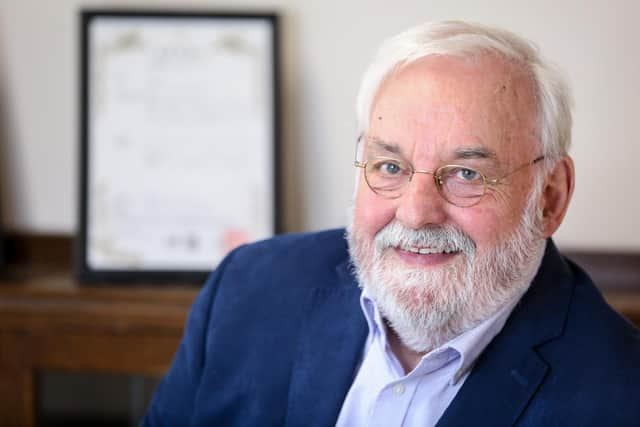Whitby company Natures Laboratory lands £180,000 grant to help tackle antibiotic resistance
and live on Freeview channel 276
Research since the end of the Second World War has shown that propolis has antibiotic, anti-inflammatory, anti-fungal and anti-tumoral properties.
For the beehive, propolis is its immune defence mechanism and according to Natures Laboratory’s CEO James Fearnley, it does just the same for humans.
And he is hailing the grant as "a fantastic opportunity".


Advertisement
Hide AdAdvertisement
Hide Ad"Natures Laboratory has been researching the role of propolis as a medicine for over 30 years," he said.
"I feel that our work has for years been like a candle burning in the bright sunlight - nobody recognised its light.
"But as the problem of antibiotic resistance has grown bigger and darker we are beginning to be seen as a real and potential help for what has seemed like an increasingly dangerous, global and insoluble problem.
“We have known about the anti-microbial activity of propolis since the 1940s and our own research in 1998 at University of Oxford confirmed this.
Advertisement
Hide AdAdvertisement
Hide Ad"During the last 30 years we have, with our university research colleagues in this country and round the world, published more than 30 scientific reports about propolis and have made some remarkable discoveries."
Mr Fearnley said the most dramatic discovery came just over a year ago during the Covid lockdown in work his company is are funding at Leeds Beckett University.
"We discovered that if you combine propolis with antibiotics that have effectively stopped working (like penicillium) they start working again.
"Exactly why and how this works we are still working on but obviously the potential benefits of combining antibiotics and propolis are enormous," he said.
Advertisement
Hide AdAdvertisement
Hide Ad"This new Innovate UK Award will help us to build on this work.
"The award will fund a two-year project working with Department of Pharmacological Engineering Science at the University of Bradford.
"We will explore how we can use cutting edge science to develop products locally that can make a real and lasting contribution to a global problem.
"This is a fantastic opportunity and a validation of 30 years of research work."
Advertisement
Hide AdAdvertisement
Hide AdThe award comes at a time when Natures Laboratory, based on Enterprise Way, has just launched the 4th International Conference of the IPRG (International Propolis Research Group) which Mr Fearnley started in 2016 and in which last year presented 39 scientific papers on the properties of propolis and attracted more than 400 participants from every corner of the world.